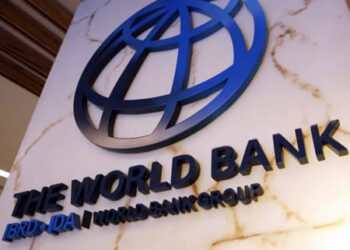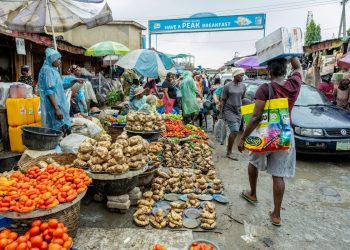The International Monetary Fund (IMF) has highlighted the fiscal and financial policies and reforms that can raise Africa’s resilience to the disproportionately higher climate change impact which has intensified food insecurity on the continent.
The Fund made this policy recommendation yesterday in a publication available on its website.
With the compounding effects–food shortages and high prices–of the Russian-Ukraine war and the Pandemic, climate change is escalating food insecurity across sub-Saharan Africa as severe weather events weigh significantly on livelihoods in the region.
The toll of climate events on crop production and food transport intensified by the challenging macroeconomic landscape is resulting in a rise in poverty and other human costs in Africa, underscoring the urgency of a well-fashioned mitigation response.
According to IMF, sub-Saharan Africa’s lack of resilience to climatic events, food import dependence, and excessive government intervention have made food supplies and prices particularly susceptible to climate change.
The fund said “most people live in rural agricultural and fishing communities that can’t afford the infrastructure to protect them from adverse weather. For example, they depend on rain to water their crops, and less than 1 percent of arable land is equipped with irrigation.”
“Weather-sensitive domestic food production results in heavy reliance on imports, with some 85 percent coming from outside the region. While food imports can provide a buffer to domestic shocks, inflation spurred by weather shocks in regions where imports are produced can be passed on to consumers. Similarly, weather events that raise the cost of transportation are also passed on. The resulting high food-import costs can erode foreign reserves and weigh on exchange rates, contributing to more rapid price gains.”
What the fund is saying
The fund believes that hedging food production and distribution from climate actions start with climate-resilient infrastructure, a type of public investment that can also create jobs and catalyze private investment.
Citing an example of public investment it highlighted “solar power that facilitates irrigation, water access, and temperature control for food storage. Equally impactful is a flood barrier that protects ports and roads critical to food distribution.”
It also said “Social cash transfers that are targeted and far-reaching help people buy food and rebuild after weather shocks. They further allow families and small businesses to invest in resilience-building equipment and technology. By offering people control of the support they receive these cash transfers are more effective at containing inequality than agricultural subsidies.”
IMF noted the need to harness digitization in bridging the small producers-large vendors gap and providing farmers access to early warning systems and mobile banking as well as platforms to purchase fertilizers, seeds, or sell produce. Additionally, micro-finance or public-private partnerships can help provide credit to people who currently don’t have access to banks, according to the fund.
The fund also recommended some cost-effective structural reforms that governments can use to help build resilience. It said:
“Trade liberalization and import diversification could help stabilize regional food supply and prices. Zambia’s big maize harvests, for example, could have helped offset shortfalls elsewhere in Southern Africa if not for a ban on exporting the crop.”
“Access to larger markets can incentivize investment in agricultural production networks and value chains. It can also help spread knowledge—such as how to plant drought-resistant crops—and spur competition. One positive step in this direction is the Africa Continental Free Trade Agreement among 54 countries, which covers most goods and services.“
The IMF reaffirmed its commitment to supporting countries in these efforts through longer-term affordable financing and climate-oriented public financial management advice to address climate change and other challenges.











